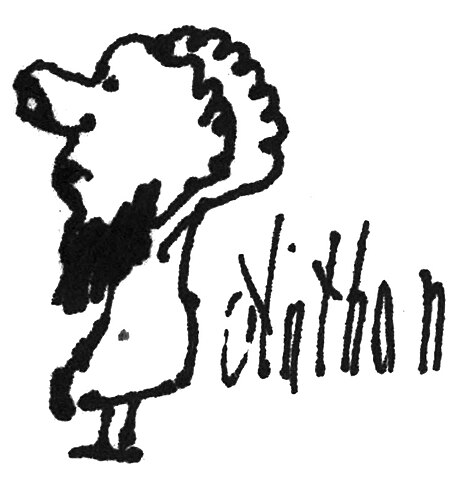

Professor Anthon had much to do with the high standards of learning in nineteenth-century American universities. Much of Anthon’s work was devoted to bringing the best products of English and German scholarship to America in editions that he improved and expanded. His textbooks on the ancient languages were widely admired, and the proof of their utility may be found in the fact that many professors resented them for making the students’ work too easy. The same was often said of his editions of the classics for students: “The editor…has been charged with overloading the authors, whom he has from time to time edited, with cumbersome commentaries; he has been accused of making the path of classical learning too easy for the student, and of imparting light where the individual should have been allowed to kindle his own torch and to find his own way.” (Preface to Anthon’s edition of Horace.) “His minute and copious annotations at first encountered some opposition,” says his obituary in Harper’s Weekly, “but so little effectual has been the force of prejudice, and so generally acceptable, both at home and abroad, have the Professor’s comments approved themselves that many, even of those who at first were loudest in their denunciations of the system thus introduced, have been compelled, by the positive advantages and rich results of this same system, to adopt as far as possible a similar fulness of annotation in their own publications.”
Professor Anthon’s editions were also usefully expurgated, so that a Victorian schoolmaster could confidently expect nothing shocking or embarrassing to mar the perfect decorum in the classroom. As Anthon wrote in the preface to his edition of Xenophon’s Memorabilia of Socrates, “The great merit of the present text, however, consists in its being an expurgated one. Every passage has either been rejected or essentially modified that in any way conflicted with our better and purer ideas of propriety and decorum, for even in the ethical treatises of the Greeks expressions and allusions will sometimes occur which it is our happier privilege to have been taught unsparingly to condemn.”
Professor Anthon is also famous in Mormon lore as the Columbia professor who was shown a transcribed “Egyptian” inscription from the Golden Plates and pronounced it a hoax, which has been interpreted in Mormon history as “authenticating” it. Dr. Boli is not sure what it would have meant for the supposedly Egyptian characters to be authenticated by Professor Anthon. You might take your diamond ring to be authenticated by Neil deGrasse Tyson, and he would reasonably tell you, “I am not a jeweler.” “But you are a famous person with a brain,” you might object. “Just authenticate it and stop beating around the bush.” At that point Dr. Tyson might begin to nod his head, make some indistinguishable affirmative noises, and back away toward the nearest exit, and you would have as much authentication as you were going to get. That is how we imagine Professor Anthon authenticating the inscription brought to him.
At any rate, to wander through Charles Anthon’s prodigious output is to enter a lost world, where a well-annotated edition of Horace could make a man’s name a household word on two continents. It is also to wander back to those heady days when the young American republic was just beginning to earn a place in the republic of letters, and to see an American name on the title page of a European textbook filled his patriotic countrymen with justifiable pride. Now that the cultures of other nations are simply gross parodies of the grossest American popular culture, it is pleasant to spend a few nostalgic hours in a world where it seemed as though the future of American culture might be determined by one American’s remarkable facility with Latin and Greek.